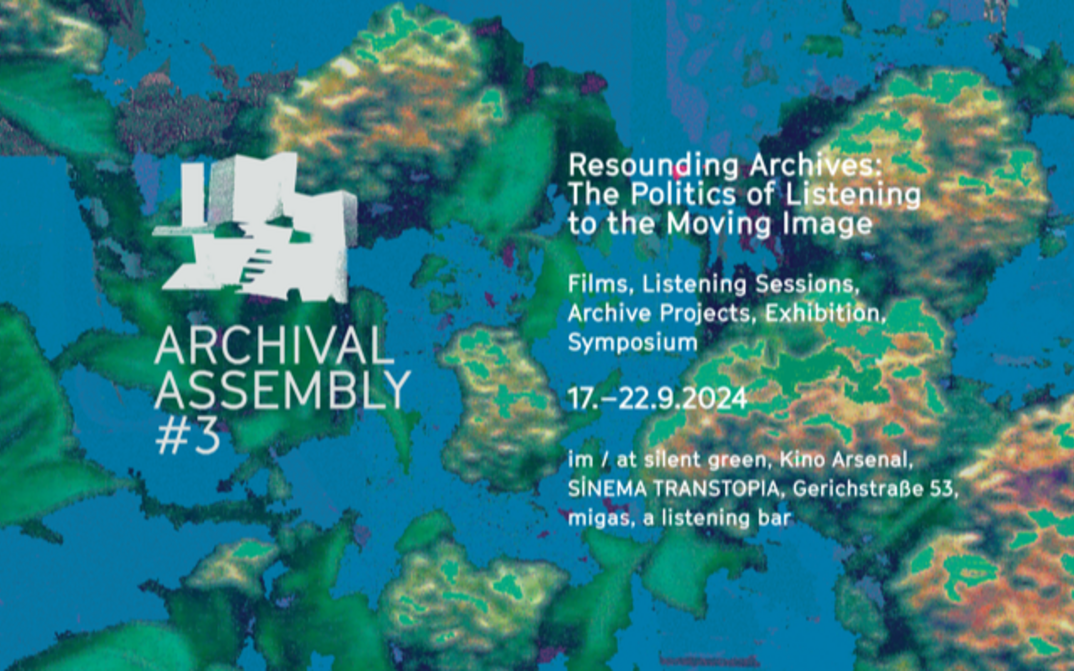Found Futures III: Talking About Film

Fri 20.09.
15:00
Cinema
SİNEMA TRANSTOPIA
zu dem KalenderFree admission
Freitag, 20.9.2024
15:00–17:30
Found Futures 3: Talking About Film
Johannes Praetorius-Rhein, Pablo La Parra Pérez, Birgit Kohler, Alexander Scholz, Stefanie Schulte Strathaus, Barbara Wurm
Moderation: Vivien Buchhorn
The sound recordings of Antoine Bonfanti’s LA CHARNIÈRE (Transition, 1968) were made during a discussion following a screening of Chris Marker’s A bientôt, j’espère (Be Seeing You, 1967). Post-screening talks have taken place at the Berlinale Forum since 1972 as well as at the Duisburger Filmwoche and are now material for a still-to-be researched history of debate cultures in cinema. Discussions also take place on the radio: Goethe University Frankfurt took in an archive of broadcasts about cinema produced by public broadcaster SWF between 1946 and 1969. Pablo La Parra Pérez, Barbara Wurm, Birgit Kohler, Stefanie Schulte Strathaus, Alexander Scholz, and Johannes Praetorius-Rhein will present a selection of recordings.
Johannes Praetorius-Rhein is a film historian and curator. His research focuses on West German postwar cinema, Jewish film history, film culture, and non-fiction film.
Pablo La Parra Pérezis the director of the Filmoteca de Catalunya. He holds a PhD from New York University with a thesis on militant film cultures in the 1960s and 1970s, a topic on which he has contributed to books and international journals. Between 2018 and 2024, he served as head of the research department and professor at Elías Querejeta Zine Eskola. He directed the project Zinemaldia 70: All Possible Histories, which led to the preservation of the San Sebastian International Film Festival’s archive, making it accessible to researchers and the public.
Birgit Kohler is Cinema Manager and Co-Programmer of Arsenal – Institute for Film and Video Art in Berlin. From 2002 to 2019, she was a member of the Berlinale Forum selection committee, and as interim director she was responsible for the section’s main program in 2019. Her curatorial projects, publications, and teaching focus primarily on contemporary documentary filmmaking and a wide range of artistic positions in contemporary international cinema. Most recently, she published “Spielarten des Dokumentarischen – Politik und Ästhetik im Kino von Anja Salomonowitz,” in: Isabella Reicher (ed.): Eine eigene Geschichte: Frauen Film Österreich seit 1999 (Sonderzahl, 2020).
Alexander Scholz is an editor, author, and sometimes lecturer at Schnitt-Filmmagazin, the International Short Film Festival Oberhausen, the Diagonale in Graz, and the International Film School Cologne, among others. He has been a scribe, press officer, and editor at the Duisburg Film Week since 2013, and publisher of AusSichten. Public Speaking About Documentary Film (2017, with Werner Ružička). Editor of the archive of film discussion protocols protokult.de. He has been the director of the festival since 2021. His literary dissertation Lesemodi geschriebener Äußerlichkeit was published by Aisthesis Verlag in spring 2024.
Barbara Wurm studied comparative literature and Slavic and German studies in Vienna, Moscow, Innsbruck, Munich, and Leipzig. Between 2012 and 2023, she was on the selection committee of goEast – Festival of Central and Eastern European Film, worked for almost 20 years as a presenter and programmer at DOK Leipzig, and a year on the selection committee of the International Short Film Festival Oberhausen. Wurm has designed film programs for international festivals and film archives and published books on subjects including Dziga Vertov and the history of Russian and Soviet film. She completed her doctorate with a dissertation on Soviet cultural films of the 1920s. She has been section head of the Berlinale Forum since August 2023.
Vivien Buchhorn is a film historian and curator. Her research interests include transnational cinemas and artworks as well as questions about how they are archived. Alongside her scholarly work, she also investigates in practice different modes of educating about films. She is head of the documentary and experimental film section of the Internationales Frauen Film Fest Dortmund+Köln and advocates for making public television archives accessible. Her multi-year research on the now forgotten filmmaker Sohrab Shahid Saless culminated in the SHAHID SALESS ARCHIVE, whose task is making the filmmaker’s entire oeuvre visible again.